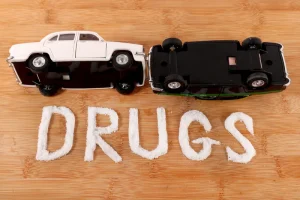
These can include stress, certain social settings, or even specific emotions. Take time to reflect on past experiences and recognize patterns that may have contributed to alcohol use. Make a list of these high-risk situations and triggers, as this will serve as the foundation for developing effective coping strategies. Understanding your personal triggers for alcohol use is essential for maintaining sobriety. Common triggers may include stress, social situations, or stages of getting sober certain emotions like anger or sadness. Work with your therapist or support group to identify your specific triggers and develop healthy coping strategies to deal with them.
Alcohol Addiction Recovery at Renaissance
Like other types of self care (working out, meditation, skincare, intuiting eating), finding sustainable habits that work for you is key. And while care can feel preventative, not responsive, it means you’re setting yourself up to confront life’s challenges as your most perseverant, present self. • Meaning and purpose—finding and developing a new sense of purpose, which can come from many sources. It may include rediscovering a work or social role, finding new recreational interests, or developing a new sense of spiritual connection. The important feature is that the interest avert boredom and provide rewards that outweigh the desire to return to substance use.

Warning Signs of Addiction
- Pink cloud syndrome refers to the happiness and joy that one experiences in early sobriety.
- The stages of recovery offer some insight into how sobriety is achieved.
- It affects more men than women and is fatal 10 to 20 percent of the time.
- With world-class treatment programs and access to all levels of care (medical detox to outpatient & aftercare) through our programs and partnerships, our recovery program is a great place to get the help you need.
These symptoms of acute alcohol withdrawal can include alcohol shakes, nausea, delirium tremens, hallucinations, and more. Another one of the most important ways to support recovery is to understand that multiple relapses over a number of years are typically part of the process. They are not occasion for blame or despair but for encouraging resumption of recovery. Families can develop awareness of a loved one’s emotional, environmental, and social triggers of substance use and manage those.
DecWhat Changes Can I Expect After Getting Clean From Drugs and Alcohol?
Recovery will be achieved through these stages of recovery, but it will never be complete. Ultimately, the development and change you go through along the way is the most important part. The addict alcoholism treatment or alcoholic will come to the realization that staying sober has become a way of life and relapse can still occur if they are not careful. Staying committed to finding an enjoyable way of life from drugs and alcohol is essential.

A Guide to Returning to Work While in Recovery
This plan should include strategies for maintaining sobriety, such as attending support group meetings, engaging in regular therapy sessions, and practicing self-care. Quitting alcohol consumption affects drinkers’ sleep patterns differently. Others struggle with insomnia and poor-quality sleep long after they quit drinking.
Stop Running from Your Feelings: An Essential Step in Developing Emotional Sobriety
- Today, she educates and empowers others to assess their relationship with alcohol.
- In order to do this, it is important to have a commitment to oneself.
- During the recovery stage, it’s not uncommon to feel temporarily worse.
- A California drug rehab and treatment center that recognizes the importance of acknowledging individual needs is a critical part of a successful recovery journey.
- Regular check-ins with healthcare professionals and therapists can provide guidance, monitor progress, and offer assistance during challenging times.
- The body is adjusting to the absence of alcohol, which can lead to various uncomfortable and potentially dangerous symptoms.
Older individuals or those with pre-existing health conditions may face more challenges during withdrawal. Additionally, genetic factors can influence an individual’s susceptibility to alcohol dependence and the severity of withdrawal symptoms. If your symptoms persist for a long time, you may have post-acute withdrawal syndrome (PAWS). This protracted withdrawal https://ecosoberhouse.com/ can lead to lingering withdrawal symptoms such as irritability, sleep disruptions, problems concentrating, and urges to use alcohol.

Does everyone experience the 4 stages of alcohol withdrawal syndrome?

If you experience PAWS, your doctor may prescribe gabapentin to help you manage your symptoms. If you’re continuing to suffer physical symptoms after two weeks of abstinence from alcohol, consult your healthcare provider. This model views recovery from alcohol addiction as a lifelong process. A getting sober timeline can be different for everyone but can be greatly helped by attending a recovery program or engaging in addiction counseling. The alcohol recovery timeline is different for everyone and is a life-long process rather than a single or time-limited event.

